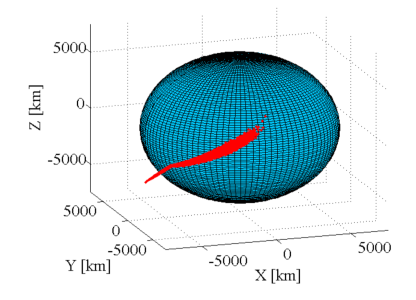End-Of-Life Disposal Concepts for Lagrange-Point and Highly Elliptical Orbit Missions

Libration Point Orbits (LPO) and Highly Elliptical Orbits (HEO) are often selected for astrophysics and solar terrestrial missions as they offer vantage points for the observation of the Earth, the Sun and the Universe. No guidelines currently exist for LPO and HEO missions' end-of-life; however, as current and future missions are planned to be placed on these orbits, it is a critical aspect to define a sustainable strategy for their disposal, with the objective to avoid interference with protected regions. Indeed, LPO or HEO lie in a highly perturbed environment; moreover, due to their challenging mission requirements, they are characterised by large-size spacecraft. Therefore, the uncontrolled s/c on manifold trajectories could re-enter to Earth or cross the protected regions.
In the framework of the ESA/ESOC contract No. 4000107624/13/F/MOS "End-Of-Life Disposal Concepts for Lagrange-Point and Highly Elliptical Orbit Missions", a detailed analysis of possible disposal strategies for LPO and HEO missions was performed. The study was done by the consortium led by the University of Southampton in collaboration with SpaceDyS and the University of Strathclyde. In TN1 a list of missions is delivered, covering all the ESA missions currently operating on LPO and HEO and future missions that are currently in post phase-B1. Based on the available debris mitigation requirement documentation and the mission parameters, the requirements and constraints for the disposal are defined
